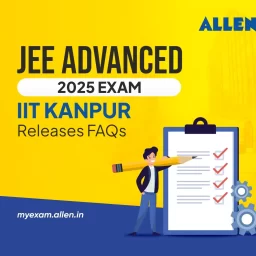This Blog Aims To Provide A Clear Understanding Of How To Navigate This Challenging Journey Of JEE
The Joint Entrance Examination, commonly referred to as JEE, is a highly competitive and sought-after entrance examination in India.
It serves as the gateway to some of the most prestigious engineering institutions in the country, including the Indian Institutes of Technology (IITs) and other esteemed engineering colleges.
As an aspiring engineering student or a concerned parent, you likely have a multitude of questions regarding this rigorous exam.
JEE, Which Stands For Thе Joint Entrancе Examination, Is A National-Lеvеl Еntrancе Еxamination Conductеd In India For Admission To Undеrgraduatе Еnginееring Programs In Various Top-Tiеr Institutions.
Any student who has completed or is in the process of completing their 10+2 (or equivalent) education is eligible to appear for JEE Main. There are no specific age restrictions for JEE Main.
JEE comprises two main examinations: JEE Main and JEE Advanced. JEE Main serves as the initial screening test, and only those who qualify in JEE Main are eligible to appear for JEE Advanced.
To be eligible for JEE Advanced, a candidate must be among the top 2.5 lakh (approximately) scorers in JEE Main and meet other eligibility requirements as specified by the organizing body.
The application process for JEE is conducted online through the official website of the National Testing Agency (NTA), which is responsible for conducting JEE Main. Typically, the application window opens in December or January.
JEE evaluates candidates in three key subjects: Physics, Chemistry, and Mathematics. The syllabus for JEE is based on the 10+2 level curriculum.
JEE Main consists of multiple-choice questions, whereas JEE Advanced includes a mix of multiple-choice and descriptive questions, in addition to other specialized formats. Both exams are known for their challenging and comprehensive nature.
Coaching is not mandatory, but it can be immensely beneficial. Many students prepare for JEE through self-study, online resources, or by attending coaching institutes. Coaching can provide structured guidance, access to experienced mentors, and practice tests to help you excel.
Stress management is crucial during JEE preparation. To keep stress at bay, you can employ various techniques such as time management, taking regular breaks, incorporating physical exercise into your routine, practicing mindfulness, and seeking support from family and mentors.
Qualifying JEE opens doors to a wide range of engineering programs, including B.Tech and B.E. You can choose from a plethora of specializations based on your interests, strengths, and career aspirations.
Yes, you can retake the JEE examination. There is no set limit on the number of attempts for JEE Main. However, you can appear for JEE Advanced a maximum of two times in consecutive years.
Recommended Read:-
- A Winning Daily Routine for JEE Success
- Preparation Strategy for JEE and NEET-UG
- Study Hacks of the Toppers – Key to Success
- Tips for Students to Build a Strong Foundation
- Benefits of Daily Routine for Success in JEE and NEET
- Tips To Boost NEET UG Scores: A Comprehensive Guide
- NEET-UG 2024 Examination – Everything You Need To Know
- Tips To Avoid Stress & Anxiety in JEE and NEET UG Preparation
- Tips to Overcome Procrastination in JEE and NEET Preparation
- Nurturing Positive Mindset During JEE and NEET-UG Preparation
- Tips To Improve Concentration For JEE and NEET UG Preparation
- The Ultimate Guide To Acing NEET-UG: Best Preparation Strategy
- Avoid 10 Common Mistakes During JEE Main Preparation For Success
- Navigating NEET-UG: A Guide To Avoid Common Preparation Mistakes
- Cracking The Code: A Guide To Achieve 100 Percentile in JEE Main 2024
- Mastering Time Management: Tips for Competitive Examination Preparation
- Tips For Competitive Exam Aspirants to Keep Social Media Distractions At Bay
- The Benefits of Solving Previous Years’ Question Papers for NEET UG & JEE Preparation









